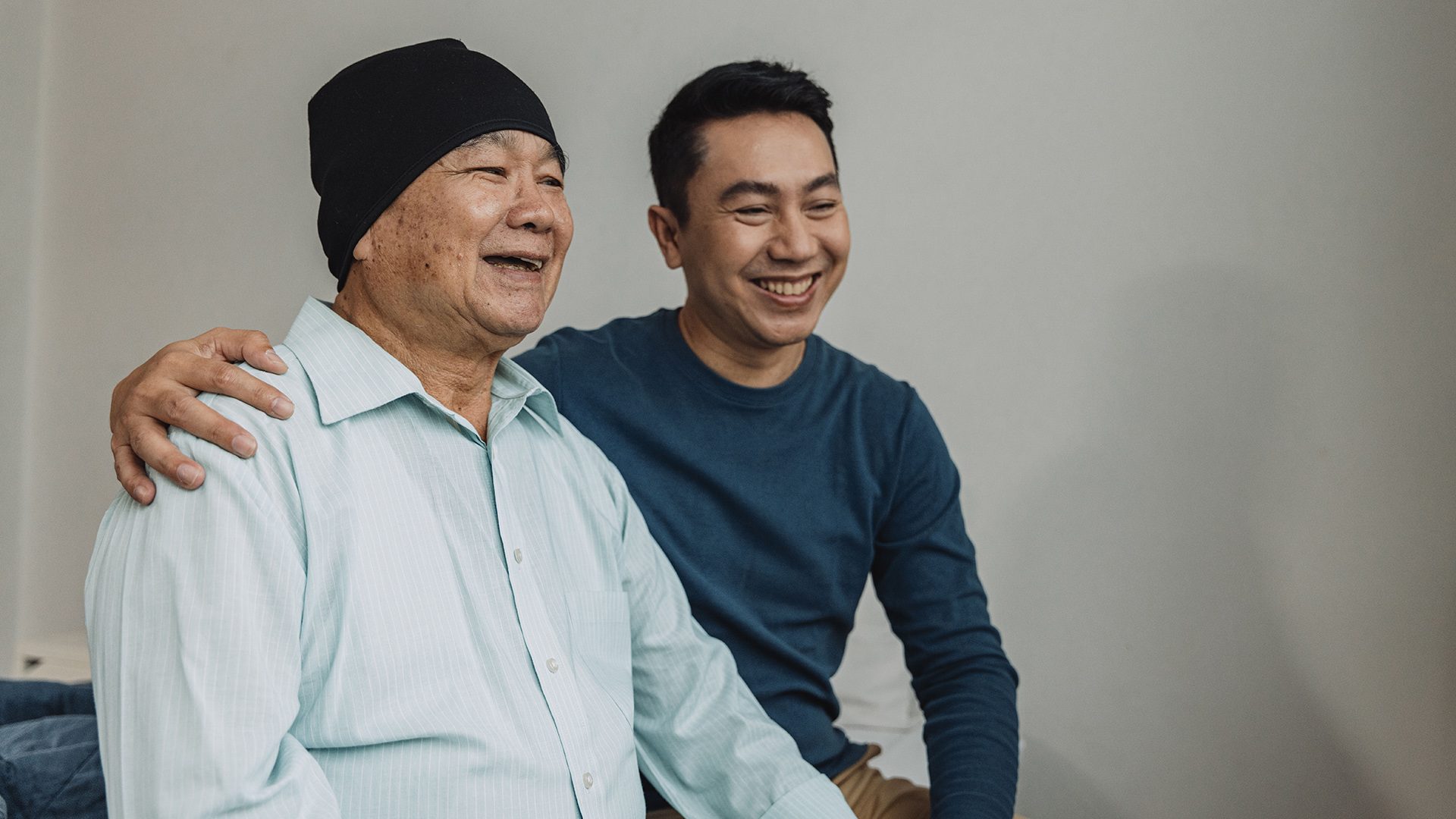Emotional Support Teams for Survivors
The need for emotional support doesn’t stop when treatment ends. There are many ways to receive emotional support that can improve your quality of life and help you manage the challenges you face at any stage of survivorship.

Support teams are the people, organizations and activities that help you during your cancer journey through encouragement and comfort during difficult times. Types of support teams include emotional, social, spiritual, financial, medical and legal. This article focuses on the ways emotional support can benefit cancer survivors.
How Emotional Support Teams Help Survivors
Being a cancer survivor can add stress in your life. You may prefer to deal with stressors on your own, but many survivors find that it’s helpful to talk with others about concerns and get emotional support from those who understand. Emotional support teams help when you:
- Feel lonely.
- Need support when dealing with your health care team.
- Rarely laugh.
- Have trouble sleeping well.
- Shy away from intimacy.
- Spend little time interacting with your loved ones and friends.
- Feel disconnected from your faith-based beliefs and support.
Emotional support teams include:
- Family and other loved ones.
- Friends and neighbors.
- Cancer support groups.
- Co-workers.
- Health care team members.
- Faith-based groups and clergy.
- Counselors and therapists.
- Other survivors.
Find a Support Group In Your Area
- Ask a member of your health care team for suggestions. Most cancer programs offer support groups for cancer survivors and their family members right in the clinic or hospital.
- Call a nearby cancer center or university hospital and ask about support groups.
- Contact Livestrong Cancer Navigation Services at Livestrong.org or call (855) 220-7777.
What to Share With Your Emotional Support Team
People in your life can help you in different ways throughout your experience with cancer. However, if you do not have an emotional support team and are feeling lonely, there are nonprofit organizations that will help you find others to talk with who understand what you are going through. This may include a support group, a free telephone counseling service, or an online chat group. Issues to share within an emotional support team include:
- Being fearful about getting cancer again.
- Worrying about finances and keeping affordable health insurance.
- Questioning faith or other beliefs.
- Worrying about being able to have children.
- Worrying about relationships.
- Concerns about sharing your cancer experience with friends.
- Concerns about finding or keeping a job.
Think about how you want to communicate with your emotional support team. Sometimes, you may have to put forth more effort asking questions and telling others exactly what kind of help and support you need. Other times, they might share their concerns and ask you questions. Try to keep the lines of communication open, talk candidly and listen to one another.
Ask Your Emotional Support Team for Help
- Visiting you at home.
- Shopping for groceries or other items.
- Cleaning the house.
- Preparing meals.
- Sending you inspirational stories or messages.
- Going to health care appointments with you.
- Providing transportation to appointments or events.
- Sending cards and notes to you with positive messages.
- Doing chores around the home.
- Having a long talk and listening.
- Adding your name to a prayer list.
Communicate Openly
Even if you feel your life is full of people who love and support you, you may experience strains in your relationships. Signs of stressors may include frequent arguments, finding less to talk about or having less contact with those who were once close to you. Open communication is usually the best approach to improving the relationship. It’s important for everyone to be able to share their concerns and what is needed.
Some friends may not feel comfortable providing support because of their own fears about cancer. If you lose touch with a friend, it’s okay to be sad. Be patient with yourself. Allow time to adjust, and try to spend time with those who are able to support you and be with you.

